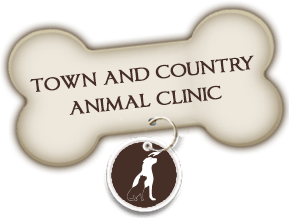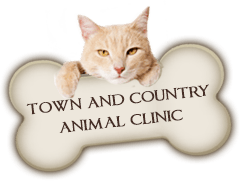
For the most part, you can continue your same animal-human relationship with your pet while you are pregnant. There are certain aspects of pet ownership that are recommended against while you are expecting. We recommend speaking with your physician or midwife as to what aspects of pet care you should be aware of, however, we can briefly touch upon points you should discuss.

Being around your cat, petting your cat and enjoying their company is still perfectly acceptable while pregnant.
1. Litter Boxes: The concern with cat ownership while pregnant is whether they have a parasite called Toxoplasma (Toxoplasmosis). This is shed in their stool, where it will become infective within 24 hours, or found in under cooked meats, particularly pork, lamb or deer. Toxoplasma can cause birth defects as well as miscarriage. Most practitioners recommend against cleaning the litter box if you have the luxury of someone else to do it for you. Keep in mind that outdoor cats will use gardens and sandboxes to defecate which can lead to infection. It is recommended to practice proper hygiene, wear gloves and washing hands thoroughly after handling litter, your cat or gardening.
2. Cat bites are notorious for becoming infected often requiring antibiotics. Avoid handling fractious or aggressive cats
3. Avoid allowing the cat to make “home” of any baby items currently in your home, crib, bassenet, stroller, car seat etc.
To reduce your risk of exposure:
*Ensure a proper cover is kept over sandboxes to prevent cats from using the sand.
*Keep your cat as an indoor cat
*Wash your hands thoroughly after touching litter, poop or gardening.
*Don’t eat or feed your cat undercooked meat.
*Avoid contact with stray cats.
*Make sure your cat is up to date on their vaccinations.
POCKET PETS (Mice, Hamsters, Rats, Gerbils, Guinea Pigs)

You can contract LCMV:
*By a bite from an infected animal
*By touching an infected animals urine, blood, saliva, feces or nesting materials
*By breathing in dust or droplets when cleaning the cage
To reduce your risk of exposure:
*Keep pet rodents in a separate part of your home
*Wash your hands after handling
*Ask other family members, if available, to clean the cage
*Avoid contact with your face
*Avoid contact with wild rodents.
DOGS:
For the most part, dogs are not concerning to be part of your life while pregnant. The main concern with dogs is behavioural.
*Don’t let your dog jump up on your belly.
*If your dog has bad habits such as jumping or biting, consider an animal behaviourist or training to alter this behaviour before you get pregnant or before the baby arrives.
*Make sure your dog is up to date on vaccinations.
*If your dog has particular habits that will not be feasibly handled when the baby arrives, try to begin the process to break these (for example, if you dog will only defecate when taken for a 20 minute walk or if they always sleep in bed with you)
*If your dog is particularly anxious without you, bonded very close to you, try to introduce other people that can bond as well. You may not be able to spend as much time with them as you currently do and stopping this attention only when the baby arrives home could lead to jealousy issues and further behavioural concerns.
*As tempting as it may be, avoid giving your pet extra attention in the weeks before your baby’s arrival, this can make it more difficult once the baby arrives to keep up with such attention to your dog. Consider slowly changing your routine to one that will be more achievable once the baby arrives.
*If their anxiety without you will be detrimental to your house or themselves, consider contacting your veterinarian or animal behaviourist to discuss this behaviour.
*Consider having a baby doll to carry around, rock, sing to, push in a stroller for the weeks leading up to the birth to get them used to these occurrences. (This may be something you only want to try at home and not in public!)
CONGRATULATIONS!! THE BABY HAS ARRIVED!


Keep treats accessible for when you are dealing with your new baby. Consider giving them a treat when you are interacting with your new bundle. The idea is to create a positive interaction where the baby is concerned rather than this “new being taking away all the attention”.
Most important point we can stress is never leave your baby or child alone with your pets. Even the most gentle and tolerant animal can be unpredictable. Eventually, as your baby becomes a toddler it will be increasingly important to begin teaching them proper etiquette and how to interact with the pets in a respectful and safe manner. No matter how tolerant the pet is, a child should never be allowed to hit, pat forcefully, pull ears, tails, lips or fur, lay on top of or get directly into the face of a pet.
Pet ownership within the family is a beautiful bond that can be very strong and healthy. Just as with children, if nurtured, loved and respected this relationship and bond will flourish. We want all of our clients and patients to have the best relationship and fulfilling bond with their pets that can be achieved. Enjoy!

https://www.aspca.org/pet-care/virtual-pet-behaviorist/dog-behavior/introducing-your-dog-your-new-baby
https://www.aspca.org/pet-care/virtual-pet-behaviorist/cat-
If you ever have concerns regarding your pets behaviour during your pregnancy or with children, we will be more than happy to discuss behaviour training, modification and recommendations on professionals in the Animal Behaviour industry to assist you.
This blog is intended for information but should you have questions regarding your pregnancy please discuss them with your maternal health care provider.










